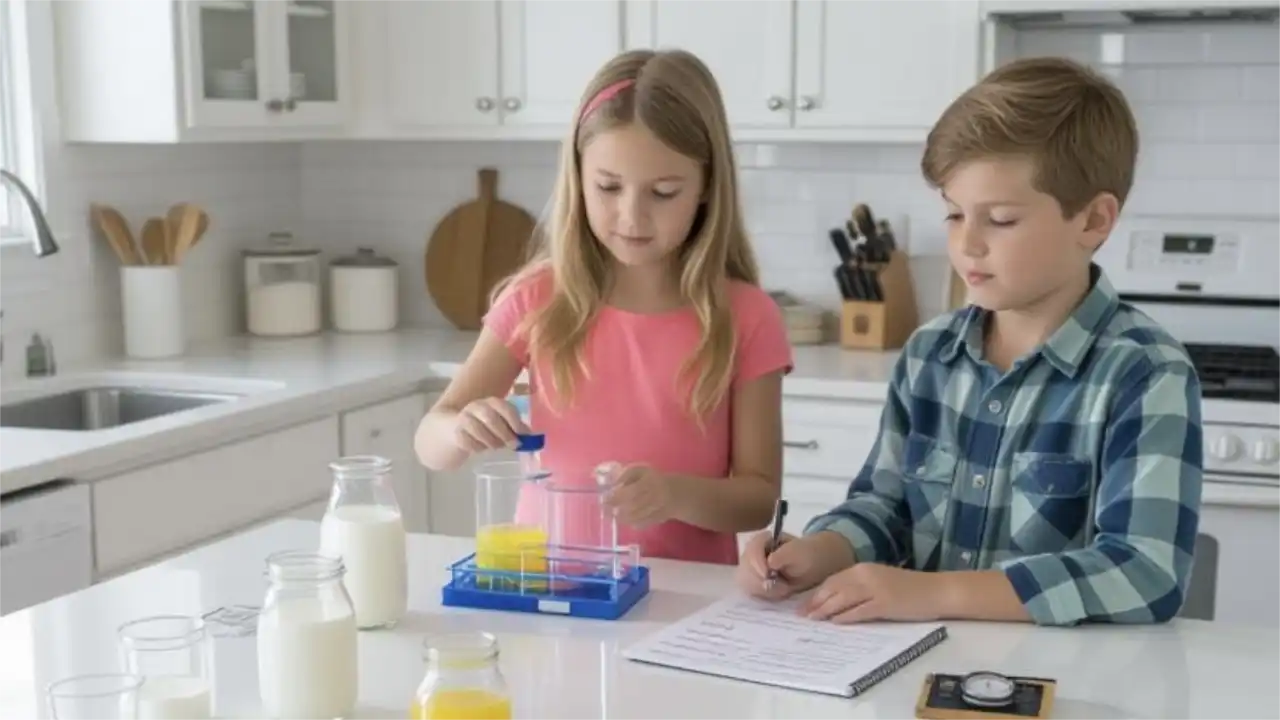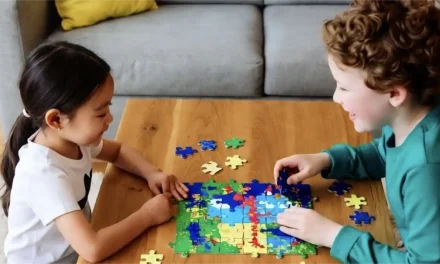
Providing Resources and Support: Create Hands-On Learning with Experiment Kits
T
inkering with a science kit—curdling milk, wiring a circuit—teaches children that discovery comes from trial, error, and observation. These hands-on experiments mirror the curiosity that once drove Enlightenment chemists to uncover nature’s secrets, not by memorizing facts but by testing them. Unlike lectures, these messy trials build grit: failure becomes part of the process, not a setback. With journals and repeat attempts, kids learn to form hypotheses, adapt their approach, and sharpen the skills they’ll need for science fairs, STEM classes, and real-world problem-solving.
I tossed a milk-and-lemon juice kit on the counter—replacing the old vinegar chaos. My daughter’s curdle erupted, my son timed the reaction and asked, “Why does it clump?” We wrecked the counter, then pivoted to chess, debating moves until midnight. Later, my daughter’s data won her a school science fair ribbon, and my son’s strategic thinking stood out in club matches. That cluttered kitchen became their lab—and their launchpad for grit, curiosity, and creativity.
Use kits regularly to build inquiry skills. Choose one each week—circuits, chemistry, reactions—and ask, “What will happen?” before beginning. Have your child log results in a science journal, tracking surprises and changes. Let them share findings at family dinners or school events. These small rituals teach resilience and curiosity—preparing them for science labs, club projects, or any challenge that demands focused exploration.
Providing Resources and Support

Providing Resources and Support: Fuel Passions with Tools like Telescopes
Offering meaningful tools deepens engagement. Provide instruments, kits, or materials that support genuine curiosity and exploration.

Providing Resources and Support: Build a Home Library for Lifelong Reading
A home library encourages curiosity and comfort with books. Learn how to create a reading space that nurtures imagination and confidence.
Table of contents

Primordial Soup for the Mind: Navigation
Navigate the book Primordial Soup for the Mind.
TIPS
- Embrace spills—it is where they learn.
- Say, “Try it differently” to nudge retries.
- Keep a journal for their results.
- Suggest weekly experiment sessions.
ACTIVITIES
- Bubble Bash: Mix milk and lemon juice, guess reactions, test again, 15 minutes.
- Game Grind: Play chess, swap a tip, retry a move, 10 minutes.
EXAMPLE
My son’s chess loss sparked a week of rematches—now he is our planner.

Download “Primordial Soup for the Mind: A Parent’s Guide to Nurturing Intellectual Growth”
Enter your information to get this article and hundreds more as part of the FREE book Primordial Soup for the Mind.
Share your thoughts with the Thought Academy community in the Comments section below.

Sharpen those skills!
Enter your information to get our FREE practice exercises so you can hone your critical thinking and reasoning skills!







0 Comments